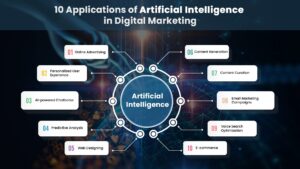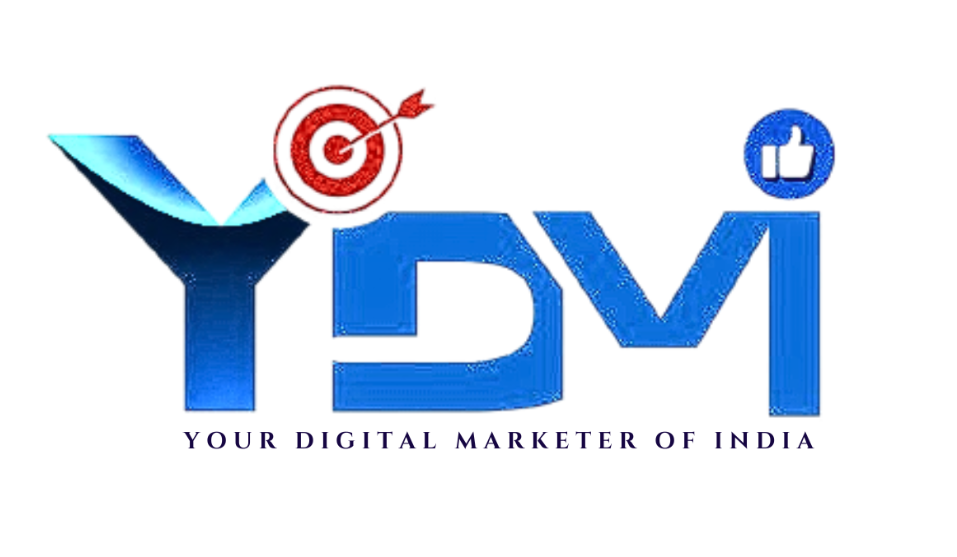The Importance of AI in Digital Marketing
In today’s fast-paced digital world, businesses are constantly looking for ways to improve customer experience, increase efficiency, and machine learning in digital marketing drive higher ROI. One of the most transformative forces reshaping the marketing landscape is Artificial Intelligence (AI). From predictive analytics to personalized content delivery, AI is revolutionizing how brands connect with their audiences. Let’s explore the importance of AI in digital marketing and how it’s becoming an essential tool for success.
1. Enhanced Customer Experience
AI enables brands to create highly personalized experiences deep and learning in digital marketing. By analyzing data from user behavior, demographics, and online interactions, AI can help digital marketers deliver tailored messages at the right time. Chatbots, for example, use natural language processing to provide instant support, answer queries, and guide users through the buying journey — 24/7. This level of customer service not only boosts engagement but also enhances brand loyalty.
2. Data-Driven Marketing Decisions
One of the biggest advantages of AI in digital marketing is its ability to process and analyze vast amounts of

data quickly and accurately. With AI-powered tools, marketers can uncover hidden patterns and trends that would be nearly impossible to detect manually. This data-driven approach allows for more effective campaign optimization, better targeting, and smarter budget allocation.
3. Personalization at Scale
Personalization has become a cornerstone of modern marketing. AI algorithms analyze user data in real-time, allowing brands to deliver dynamic content that matches individual preferences. Whether it’s personalized email campaigns, product recommendations, or targeted ads, AI helps marketers create relevant experiences for each user — at scale. This not only improves conversion rates but also reduces bounce rates and increases overall user satisfaction.
4. Smarter SEO and Content Marketing
Search Engine Optimization (SEO) is critical for visibility in today’s competitive digital landscape. AI helps digital marketers refine their SEO strategies by analyzing keyword trends, understanding search intent, and optimizing content structure. AI tools can suggest keywords, assess content readability, and even generate high-quality blog topics that are likely to perform well. This enables businesses to stay ahead in search engine rankings and attract organic traffic.
5. Predictive Analytics and Customer Insights
AI leverages predictive analytics to forecast future trends, customer behaviors, and potential buying patterns and ai with digital marketing. This empowers marketers to make proactive decisions, plan better campaigns, and address customer needs before they arise. AI-driven insights help in segmenting audiences more effectively, which in turn leads to higher engagement and improved ROI.
6. Automated Advertising
AI is changing the game in online advertising. Platforms like Google Ads and Facebook Ads use AI to automate bidding strategies, target specific audience segments, and improve ad performance. AI can analyze which creative assets perform best, what time ads should be shown, and how to adjust campaigns in real-time for maximum impact. This automation saves time and ensures that ad spend is used efficiently.
7. Voice Search Optimization
With the rise of voice assistants like Siri, Alexa, and Google Assistant, optimizing content for voice search is becoming increasingly important. AI helps in understanding natural language queries and user intent behind voice searches. Digital marketers can use this insight to create content that answers spoken questions, improving visibility and relevance in voice search results.
8. Improved Email Marketing
AI enhances email marketing by segmenting audiences based on behavior, preferences, and interaction history. It can determine the best time to send emails, craft subject lines that resonate, and suggest content that aligns with the user’s interests. This leads to higher open rates, better click-through rates, and more conversions.
9. Social Media Monitoring and Sentiment Analysis
AI tools can scan social media platforms in real-time to monitor brand mentions, customer feedback, and emerging trends. Sentiment analysis helps marketers understand how their audience feels about their products or services. This allows brands to respond promptly, manage reputation, and adjust campaigns based on public perception.
Conclusion
AI is no longer a futuristic concept — it’s a present-day necessity in digital marketing. From automation to personalization, from data analysis to content creation, AI is empowering marketers to be more strategic, efficient, and effective. As digital marketing continues to evolve, embracing AI is not just an advantage; it’s a competitive imperative.
For businesses aiming to thrive in the digital era, investing in AI-powered digital marketing strategies is key to driving growth, improving customer engagement, and staying ahead of the curve.


